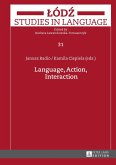This volume addresses the themes of language, identity and linguistic politics in Europe. The twelve essays draw on approaches and methodologies from a range of disciplines, from sociolinguistics and contact linguistics to cultural history, psychology and policy studies. Together, they offer a collection of views on how language, society and identity are perceived to be connected. These issues are of particular importance in Europe, where the nation-building project is often paired with a linguistically based notion of social identity.
However, historical forces including shifting borders, economically and politically motivated mobility and changing political regimes have led to more complex national identities and more nuanced approaches to the role of language. Both historical developments and contemporary sociolinguistic contexts are investigated in the book, including the presence of multilingual communities and minority language communities. The volume makes a significant and timely contribution to our understanding of the linguistic landscape of today's Europe.
However, historical forces including shifting borders, economically and politically motivated mobility and changing political regimes have led to more complex national identities and more nuanced approaches to the role of language. Both historical developments and contemporary sociolinguistic contexts are investigated in the book, including the presence of multilingual communities and minority language communities. The volume makes a significant and timely contribution to our understanding of the linguistic landscape of today's Europe.
«Negotiating Linguistic Identity [...] is thus a welcome contribution to the debate on identity in International Relations. [...] All the chapters are detailed and thought-provoking contributions that make this book useful especially for persons that are seldom exposed to the type of debates privileging identity and soft power better to understand international relations.»
(Stéphan Sberro, European Review of International Studies, 3/2016)
(Stéphan Sberro, European Review of International Studies, 3/2016)








